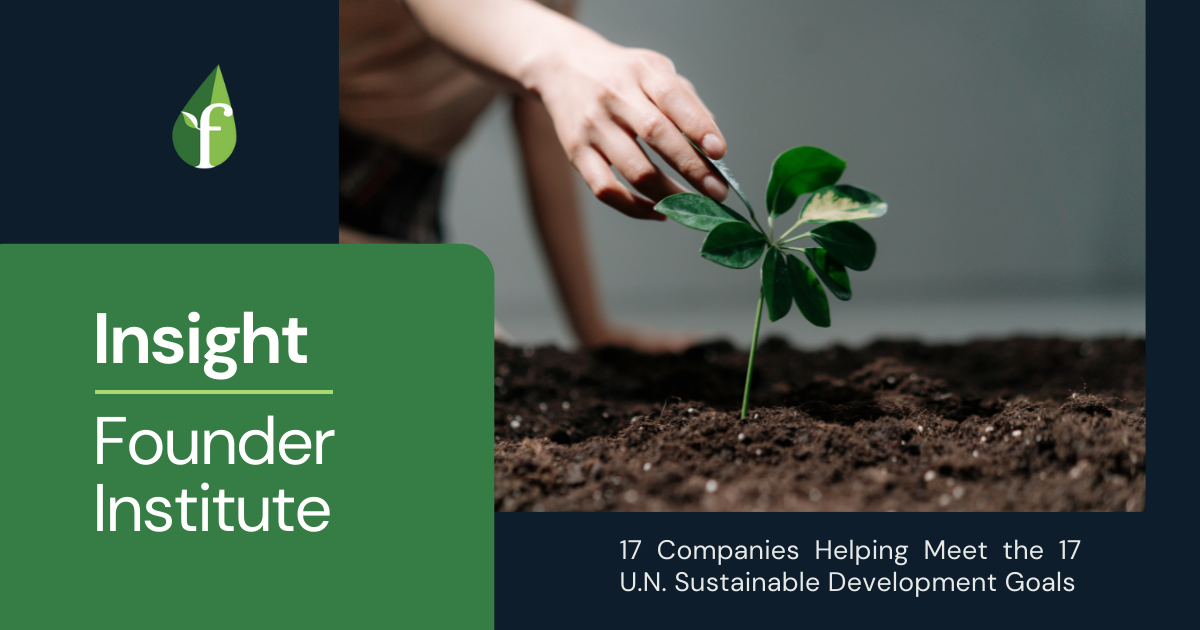
The world is faced with many problems, which means that it falls upon us - humans - to constantly work together to address the issues we all face, and to create a better future for everyone.
But what happens when our collective innovation stagnates? When we neglect our duties to help one another, and our planet? When we let our ideological differences get in the way of modernization? We get problems like these:
-
Water supplies being contaminated with cancer-causing chemicals.
-
Unhealthy food contributing to rising obesity, cancer, and heart disease rates.
-
Long-running droughts becoming a growing global problem, even in developed regions.
-
First-world countries wasting enormous amounts of food every year, while those in developing nations continuously struggle to grow and purchase food for their families.
These are just a few of the problems that many folks are experiencing around the world, some more so than others. But it seems that there’s not a single region that’s unaffected by the threat of some widespread food- or water-related peril.
While the world is overall improving in many aspects, there is still no doubt that there is plenty of room for improvement for all.
Luckily, however, there is a growing movement that recognizes the issues that are plaguing us, along with an expanding number of individuals who are taking the reins in fixing our global problems. According to Kimbal Musk, brother of Elon Musk:
Many of us live at the mercy of an industrial food system that is devastating to our health, our environment, and our communities. It’s no surprise people are turning against this system on an enormous scale. People want local, real food — food they can trust.
Can Really Tech Solve the World’s Food and Water Problems?
Food and water companies can do more than just build food delivery apps and designer water bottles. No, tech companies, with the right team and vision, can drastically improve the way we cultivate and distribute our precious resources.
In fact, many existing types of technology can be applied to the food and water industries, including:
-
Hardware
-
Software
-
Data analytics
-
Solar-powered tech
-
Mobile apps
-
Artificial intelligence
-
Smart homes
-
Biosensor technology
-
IoT
Keep in mind that this is only a small list of existing technology that can be utilized to solve bigger problems around the globe. Some of the world’s top startups got their start by taking a piece of technology that was primarily used for one purpose, then appropriating it for another purpose entirely.
So to answer the question, yes, tech really can solve the world’s food and water problems. And if you’re considering tackling major challenges through entrepreneurship but don’t know how to begin, start by looking at the dilemmas that people face everywhere, and ask yourself how tech can be used to address it. Below are a few examples to get you started:
-
Can software be used to reduce food waste?
-
Can artificial intelligence be used to fight starvation?
-
Can smart homes promote better, healthier eating habits?
-
Can IoT be used to clean our water supplies?
Remember, what may seem like a far-fetched startup idea to most may actually be a great startup idea, and be the key to saving the world.
And don’t forget, if you are interested in launching a startup that can mend the damage of the world, you won’t be alone.
Who’s Addressing the World’s Food and Water Problems?
Kimbal Musk is one of the more prominent luminaries in the fight for a healthier, more sustainable future for humans. In addition to his role as board member of such companies as of Tesla, SpaceX, and Chipotle Mexican Grill (the first two of which were launched by his brother), Kimbal is the co-founder of The Kitchen Community, a nonprofit that builds "Learning Gardens" in schools designed to teach kids about the value of fresh fruits and vegetables.
As if these endeavors weren’t enough, Kimbal and fellow entrepreneur Tobias Peggs are founders of Square Roots, an urban-farming incubator program that consists of 10 steel shipping-container farms where aspiring entrepreneurs develop vertical-farming startups. What sets this approach apart, if not above, traditional outdoor farms, is that vertical farms grow soil-free crops indoors and under LED lights. And the best thing about vertical farms? They can grow crops all year with significantly less water and space than outdoor farms.
Check out the video below to see Kimbal Musk discuss how he's revolutionizing the food industry
Of course, you don’t have to be the brother of a billionaire to start solving the world’s food and water problems. Below are a few Graduates of the Founder Institute who are blending technology with a mission driven purpose in the food and water industries:
Watsan
Founder: Chandrasekaran Jayaraman
Chapter: Chennai
Description: Watsan is developing affordable, electricity-free water filters and ready-to-fit toilets using green energy, hence the name WAT(er)SAN(itation).
OddBox
Founder: Emilie Vanpoperinghe
Chapter: London
Description: OddBox fights food waste on farms by reclaiming fresh, local, seasonal but slightly misshapen and surplus fruits directly from local farms and markets.
Walibox
Founder: Jonathan Sage
Chapter: Silicon Valley
Description: Walibox makes smart irrigation meters that measure water delivered to crops, not what is running through lines, with line-of-sight analysis of sprinkler, drip and micro spray emitters.
TotalCtrl
Founder: Charlotte Aschim
Chapter: Oslo
Description: TotalCtrl is creating a faster, fresher future by eliminating food waste in grocery stores through a unique software that tracks expiration dates.
Are you feeling inspired to tackle the world’s food and water problems yet? Here’s a little wisdom from Kimbal Musk to get you started:
The one lesson I've learned from technology and food is the only time you know you're doing the wrong thing is when you're doing what everyone else is doing.



